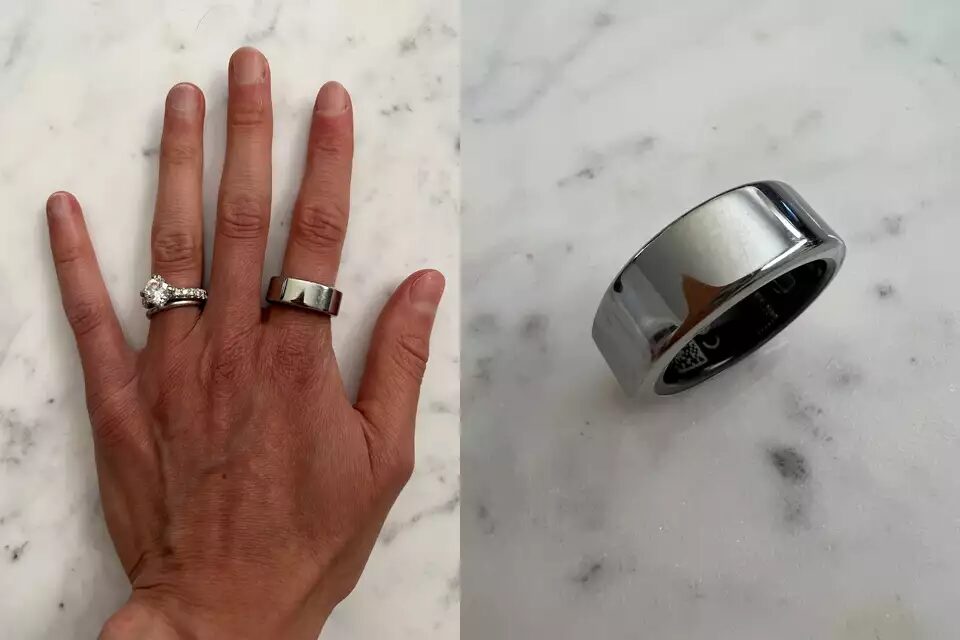
Oura Ring: The Future of Sleep Tracking and Technology’s Role in Employment
As we step into a new era of personal health monitoring, the Oura Ring has emerged as a frontrunner in the wearable technology market. This tiny ring captivates users with its sleek design and advanced features. It tracks sleep patterns and various health metrics, gaining immense popularity among fitness enthusiasts and casual users alike. However, as humanity continuously creates seemingly unnecessary technology, questions arise about its implications for our daily lives and employment landscape.
The Rise of the Oura Ring Technology
The Oura Ring, launched in 2015, has evolved into a sophisticated health tracker. It monitors heart rate variability, blood oxygen levels, skin temperature, and sleep stages. A recent validation study published in the journal Sensors highlighted its superiority over competitors like the Apple Watch and Fitbit in accurately tracking sleep stages. Researchers at Brigham and Women’s Hospital found that the Oura Ring achieved a remarkable 79% agreement with polysomnography—the gold standard for sleep assessment—making it the most reliable consumer sleep tracker available today.
Empowering Users Through Data
This advancement reflects a broader trend in wearable technology where devices not only collect data but also provide actionable insights. Users access daily scores summarizing their sleep quality, activity levels, and overall readiness for the day. Such detailed feedback empowers individuals to make informed lifestyle choices aimed at enhancing their well-being.
The Question of Necessity
However, the rise of devices like the Oura Ring raises critical questions about technological advancement in our society. On one hand, these innovations offer unprecedented opportunities for self-improvement; on the other hand, they contribute to an ever-growing market that thrives on consumerism. As people become increasingly reliant on gadgets to monitor their health, it begs the question: are we creating technology that we truly need or merely fueling a cycle of consumption?
A Scenario of Dependency
Consider a young professional who invests in an Oura Ring to optimize their sleep patterns. This individual may find themselves engrossed in data analysis every morning. They adjust their routines based on insights provided by the device. While this can lead to improved health outcomes, it also highlights a dependency on technology for basic self-awareness—an irony given that many insights were once accessible through simple lifestyle adjustments.
Impact on Employment
The implications extend beyond personal health; they touch on employment as well. The tech industry is rapidly expanding to meet consumer demand for wearables like the Oura Ring. Companies are hiring data scientists and engineers to develop algorithms that enhance user experience and accuracy. This trend signifies a shift toward tech-centric roles that prioritize data analysis and software development over traditional occupations.
Healthcare Integration and Ethical Concerns
Moreover, as more individuals adopt wearables for health tracking, healthcare providers may increasingly rely on this data to inform treatment decisions. This integration could streamline healthcare processes but may also lead to ethical concerns regarding data privacy and ownership. Who truly owns the health data collected by these devices? As consumers navigate this complex landscape, they must remain vigilant about how their information is used.
The Paradox of Performance Metrics
Additionally, while wearables like the Oura Ring promote health awareness, they can inadvertently contribute to anxiety around performance metrics. Users may feel pressured to achieve optimal scores in sleep quality or activity levels. This pressure can lead to stress rather than relaxation—a paradox that underscores the need for balance in our tech-driven lives.

The Allure of Wearable Technology
Despite these concerns, the allure of wearable technology continues to grow. The Oura Ring’s sleek design appeals not only to fitness enthusiasts but also to those who prefer discreet health monitoring without compromising style. Priced at around $299, it offers a compelling alternative to bulkier fitness trackers while providing extensive health insights through its accompanying app.
A Call for Reflection
As we ring out the old year and welcome new advancements in technology, it’s crucial to reflect on our relationship with these devices. The Oura Ring exemplifies how innovation can enhance our understanding of personal health while simultaneously raising important questions about consumerism and employment dynamics.
In conclusion, while wearable technology like the Oura Ring offers valuable tools for improving our lives, it also challenges us to consider what we truly need versus what we are led to believe we need. As society continues to embrace these innovations, striking a balance between leveraging technology for self-improvement and maintaining autonomy over our choices will be essential.

